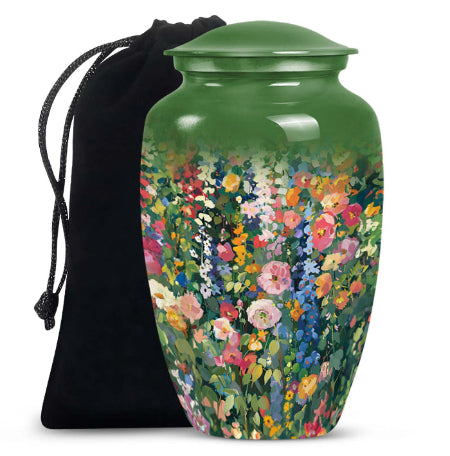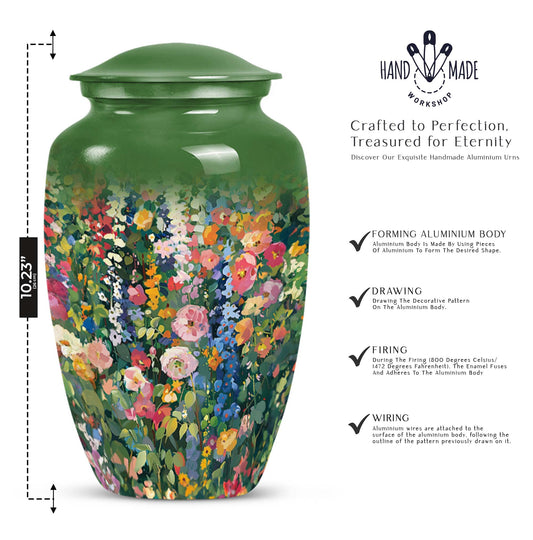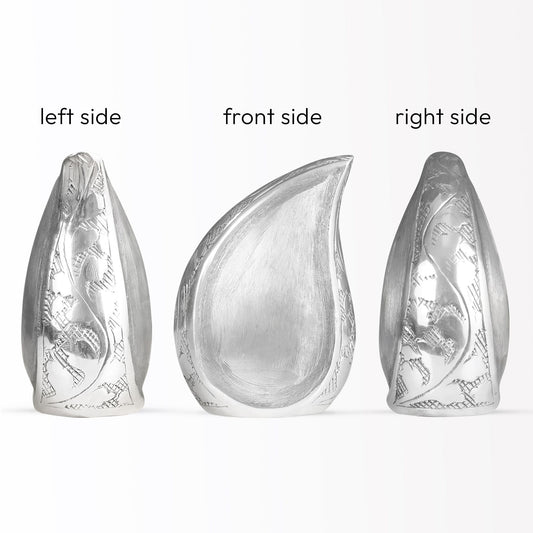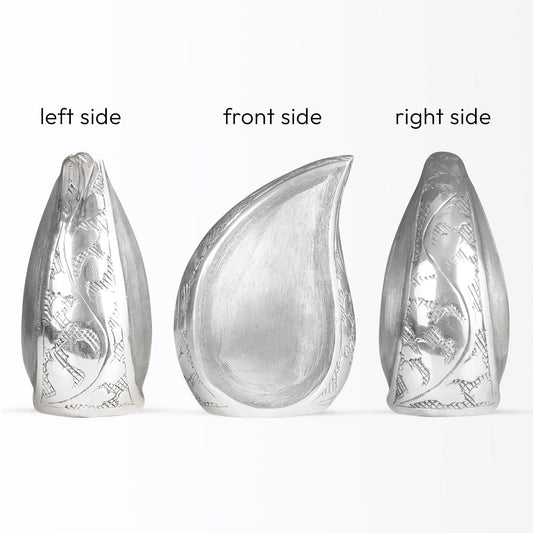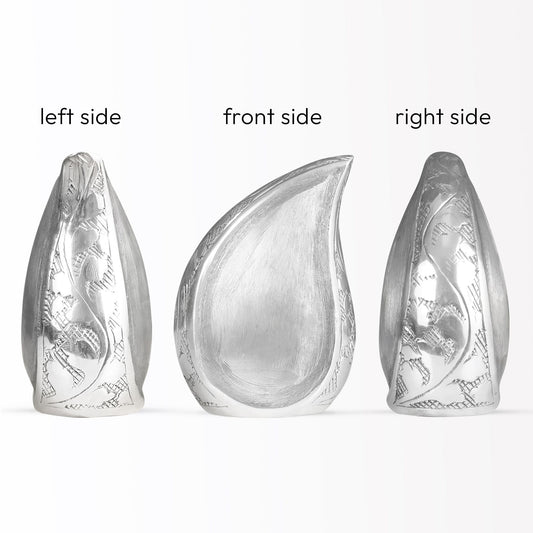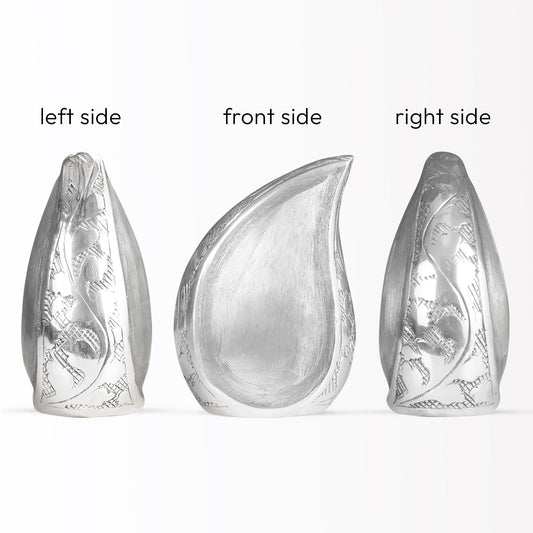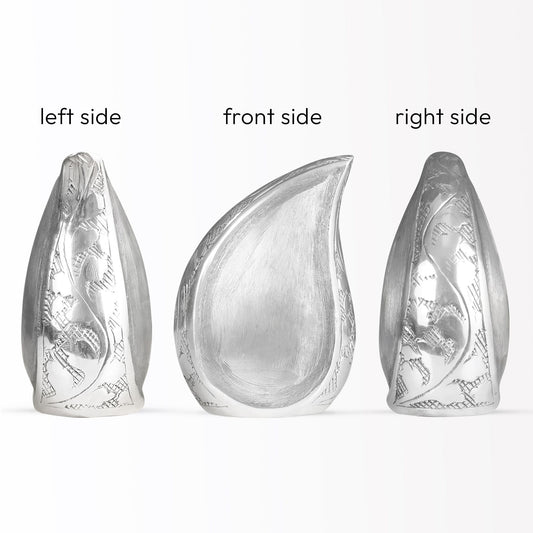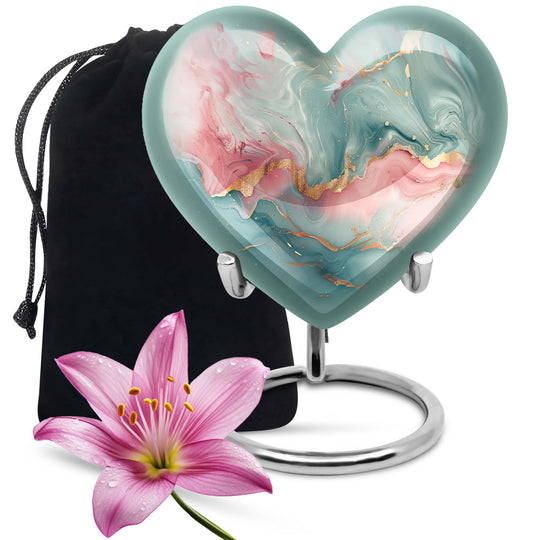Popular Urns
Should You Invade The Privacy Of Someone Who Is Mourning?

Privacy During The Mourning Phase
The emotional world of a grieving individual, when someone's dear one has died, becomes sensitive and a little volatile. When the friends and family around him/her try to achieve an appropriate balance between giving them support and maintaining their privacy, it becomes challenging to find that balance. There comes an important question in that situation: Should one violate his privacy to help him out, or if not that, how do we make him smile without violating his privacy?

The first and foremost point is that grief is such an extremely personal thing. Every individual handles it differently, some might seek comfort in other people's presence, and others need solitude to be able to think things over. Intruding into someone's private space during this vulnerable period can feel quite intrusive and disrespectful, leading to more emotional distress. Instead, be soft and sympathetic with the condition so that the intensity of interaction should be dictated by the mourner.
Communication is the key to supporting the grieving person without breaching their privacy. Start by offering your condolences and letting them know you are here for them when they want to talk.
A simple message like, "I'm here for you when you're ready to talk," can open the door for them to reach out when they feel prepared. This approach respects their autonomy while showing your willingness to provide support.

Helping is providing helpful aid but avoiding overstepping their boundary. Day-to-day tasks of living will become cumbersome during grief; so, grocery shopping or preparing food can be prepared and domestic work managed by another so not to compound on them any additional distress about a household and a workplace workload including day-to-day concerns with trying to deal with such loss.
It is also important to be sensitive to their cues. If they seem introverted or irritable, it might be a hint that they need space. On the other hand, if they reach out and seem receptive to talking with you, then listen intently without judgment or unsolicited advice. Sometimes, just having a compassionate ear can ease a huge burden.
Cheering up a grieving person should never involve dismissing their grief or forcing positivity upon them. Such phrases as, "You should move on," or "At least they're in a better place," dismiss the grief and invalidates their feelings. What is required is an environment where one feels safe enough to let their emotions surface. If they seem open, encourage doing something small that may help distract or comfort them: going for a walk, watching a movie, or perhaps even working on a hobby together.

In the end, someone grieving is better assisted by sympathizing and showing patience toward them and by respecting what they need. Grief does not come with an instruction manual and formula of how long to expect. Rushing them along could be worse than assisting them along. Being there, present, attentive, and respecting one's private space will soothe them and brighten them up in the best ways as one respects their journey through loss.
In conclusion, a person mourning needs his privacy the most. If you really care and want to soothe their pain, invasion into your private space will be of no good but harmful. On the contrary, by giving expressions of thoughtful support and allowing the person mourning to set the pace of relating, you can play a very important role in healing without overstepping your boundaries.
ALSO READ:












